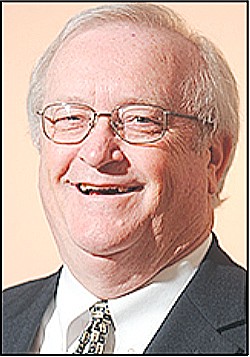As the Legislature started meeting last week in Little Rock for their budget and finance only session, those same old questions are being held of who, what, when and why are we having these highly technical, financial, and boring sessions about budgets, revenue forecasts and salaries.
So, a little history lesson, albeit, a short one, may be needed.
A history lesson for the public and of course, the Arkansas Legislature, who these days needs a lot of institutional history and of course in a legislative history void of all the boogie men (and women) that our governor decries as "full of indoctrination specialists and far-left liberal separatists."
The current legislative session, which will wrap up in about a month, began to further educate members of its own legislative body on the financial structure, plans and budget processes of the state government.
Back in the old days, only a handful of studious-minded legislators knew how to budget the state's money on a two-year basis.
And only a few of that tiny collection of state legislators were adept at looking after the state's taxation, collection, investment, and disbursement of state funds over the projected two-year budget cycle, often a full two years away from when the Legislature was then meeting.
Most of the legislative body (my estimate upwards to 80% of its members) could not read a state government balance sheet, make a budget and stick with it, or had even made an actual payroll at their own businesses, law firms, school districts, city halls, restaurants, car dealerships, or banks, back home.
Somebody else within their employ, usually the spouse or some female employee, usually a working mom and with a real sense of planning, saving, and a plan for dispersing the meager funds to run a household, ran the businesses of this state.
Oh, there were a few men in the business community, banking community and professional ranks of education and law, who knew about money, but their number in the Arkansas Legislature back then (and today) was few and far between.
So, in 2008, Arkansas voters decided that state lawmakers should meet every year, with regular sessions held in odd-numbered years (as had always been the case) and fiscal sessions (proposed by Republican lawmakers, then in the minority) held in even-numbered years.
Two Northwest Arkansas lawmakers, former state Rep. Eric Harris of Springdale and former state Sen. Bill Pritchard of Elkins, drafted an amendment to the Arkansas Constitution.
Both men were mildly successful businessmen.
But both had been stymied for years in their legislative service by a stranglehold of other legislative members who were among the very small contingent who had a tight control over the state's purse strings, including budgets and spending of collected funds. This was their real impetus to enact a fiscal session.
Both these GOP lawmakers who sponsored the amendment argued in favor of adding fiscal sessions so that lawmakers could have more oversight over the budget.
Democratic lawmakers--who at the time held 71 of the 100 House seats and 27 of the 35 Senate seats--apparently agreed: The measure got 80 votes in the House and ultimately 21 votes in the Senate (after a first vote failed).
The Republican Party of Arkansas made support for the proposal part of its platform that year.
And in November of 2008, voters went on to approve the proposal with more than 69% of the vote. Under the amendment, these budget-focused sessions are limited to 30 days and can only be extended once by up to 15 days, and only then by a three-fourths vote of both chambers.
These sessions are much, much shorter than regular sessions.
And by design, they're limited to appropriations, which means the meetings generally are calmer and less divisive than traditional sessions filled with bills to change laws, enact new laws and as we have seen of late, bills filled with out-of-state, far-right rhetoric and legal devices to impact Arkansans, not bills drawn by Arkansas lawmakers for its own citizens.
But even these fiscal sessions are not totally free from some emotional, hate-filled legislation, trying to make its way onto the floors of the legislative chambers.
Lawmakers can, by a two-thirds vote of both chambers, introduce non-appropriation bills (though this rarely happens). Unlike a special session, where a single two-thirds vote to open the session beyond its intended scope can mean any number of bills filed, a fiscal session requires a two-thirds vote to allow each piece of legislation outside the session's scope.
But legislators who want only to sow division and try to make all the state's citizens come under backwards MAGA thinking, are bored with this fiscal session.
So, in recent years, several lawmakers have talked about eliminating the biennial fiscal sessions.
Will they get their way?
-- Maylon Rice is a former journalist who worked for several northwest Arkansas publications. He can be reached via email at [email protected]. The opinions expressed are those of the author.

